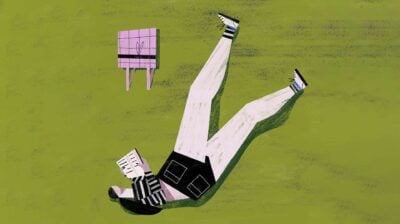Myths about self harm
In order to understand self harm, it helps to know the myths.

Self harm is a coping mechanism that is often used to deal with difficult emotions. Everyone self harms for different reasons, and in different ways so there is no one size fits all way of dealing with it. You can find a list of articles about self-harm here.
Myths about self harm
Self harm can be very misunderstood, and there are a lot of myths around who self harms, how they self harm, and why they do it. If someone opens up to you about their self harm, it’s important to know the myths and the truth so that you can support them.
Only young people self harm
This is not true. People of all ages self harm. It’s a problem that affects people of all ages from all generations and is not just something that teenagers do.
Self harm only affects girls
Just like self harming can affect people of all ages, it can also affect all genders. The stereotype that just females self harm is damaging and can really prevent people from coming forward and seeking help.
It’s just a phase – they’ll grow out of it
If someone you know is self harming the best thing you can do is to take it seriously. Simply saying they’ll grow out of it, sort of dismisses it completely. While some people who self harm hurt themselves on a regular basis, others may only do it once or only occasionally. Others may go on to self harm for years and may use it as a coping mechanism for dealing with difficult emotions or feelings. The good news is that recovery from self harming is possible, although for some people the process of recovery can take time. For most people, recovery means finding other, non-harmful ways to manage how they feel.
They’re attention seekers
This couldn’t be further from the truth. For the majority of people self harming is something that is extremely private and personal. People who self harm often go to extreme lengths to hide their injuries and contrary to popular belief do not flaunt them. A lot of people who self harm feel huge shame and guilt over it.
People who self harm want to die
The myth that all people who self harm are suicidal is not true. For many people self harm is a coping mechanism they use to cope with extremely difficult feelings or emotions. While some people cry or talk to friends as a way of coping with difficult feelings, others might self harm. There are, however, some people who feel suicidal and it is important that you support them to access professional medical support immediately.
Self harming refers to cutting only
Most people when they hear of self harm immediately think of people cutting themselves but people can hurt themselves in loads of different ways. A key factor that ties all forms of self harm is that the person intentionally does something to hurt themselves in some way.
Self harm isn’t an issue if the injuries are only minor
Even if the person who self harms does not require medical attention, they still need support. Self harming is always a sign that a person is in emotional pain and needs help.
People only self harm due to peer pressure
Self harm has very little to do with fitting in or showing off. Most people who self harm actually try to hide their cuts, scars and bruises from friends and family.
People who self harm don’t feel pain
Some people who self harm say that they don’t feel pain during self harming, but most say that it is the physical pain that actually helps to distract them from any emotional pain or stress they are experiencing.
People who self harm have been abused
While some people who self harm may have been physically or sexually abused, this is not the case for everybody. Everyone who self harms has different reasons for starting to self harm and for some people these can be complicated. Professional help can help people to explore and understand more about why they self harm and how they can stop.
If they wanted to stop they could
If only it was that simple. Self harm can become an addictive behaviour for some people so it’s not as simple as telling someone to just stop. Avoid giving someone an ultimatum to stop as this is often not helpful. The person needs help, understanding and support instead of being judged for their unhealthy coping mechanism.
How can I help someone who self harms?
- It’s important that they speak to a mental health professional who will be able to provide support. Their first visit should be to their GP as they can refer them to other mental health professionals if necessary.
- They can also attend a service like Jigsaw.ie who provide free support to 12-25 year olds. They have centres all around the country and work specifically with young people so they will completely understand whatever you tell them.
- Pieta House is a free confidential service that works with people who self harm or who are suicidal. They have centres all around the country and have virtually no waiting lists. You can contact them by calling 1800 247 247 or texting “HELP” to 51444.
- You can contact a listening service like Samaritans on 116 123..
Traveller Counselling Service
If you are a young Traveller and would like to speak to a counsellor who specifically works with the Travelling Community, the Traveller Counselling Service can support you. The service works from a culturally inclusive framework which respects Traveller culture, identity, values and norms. They provide Traveller culture centred counselling and psychotherapy. They are a Dublin based service but offer counselling both in person and online.
- Landline: 01 868 5761
- Mobile: 086 308 1476
- Email: [email protected]
Feeling overwhelmed and want to talk to someone?
- Get anonymous support 24/7 with our text message support service
- Connect with a trained volunteer who will listen to you, and help you to move forward feeling better
- Whatsapp us now or free-text SPUNOUT to 50808 to begin.
- Find out more about our text message support service
If you are a customer of the 48 or An Post network or cannot get through using the ‘50808’ short code please text HELLO to 086 1800 280 (standard message rates may apply). Some smaller networks do not support short codes like ‘50808’.






